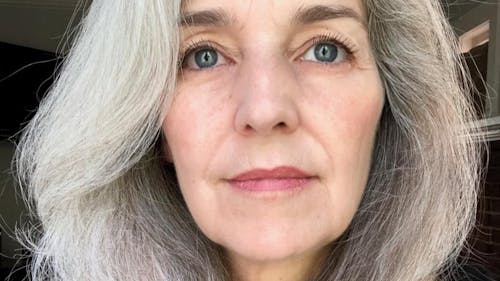U. professor receives fellowship from Medieval Academy of America

Samantha Kelly, a professor and associate chair of the Department of History, was recently designated as a fellow in The Medieval Academy of America's Class of 2024.
The Medieval Academy of America highlights those who are breaking ground in medieval studies, and fellowships are given to those who have made noteworthy contributions to the field through their academic work and service.
In an interview with The Daily Targum, Kelly said she has taught at Rutgers since 1999 and has won several prizes over the past few years.
She won the American Catholic Historical Association's Marraro Prize for her 2003 book, "The New Solomon: Robert of Naples (1309-1343) and Fourteenth-Century Kingship," and a New Directions Fellowship from the Mellon Foundation, a private organization that provides grants to scholars to encourage arts and humanities.
Kelly said her role as associate chair of the Department of History includes assisting in managing the department in addition to teaching several classes.
"Teaching is the major way we interact with students," she said. "But there's a lot that goes on behind the scenes to keep a department running."
Kelly said she loves teaching her Renaissance class because her knowledge of the topic constantly changes due to the new insight her students provide. She said she also loves teaching an introductory class in African history because the course introduces students to the complexity of a new topic.
Kelly said she advises her students not to be afraid to start something new, citing her own decision to pursue her field during graduate school.
She said a lot of her research focuses on the interactions between Ethiopians and Europeans in the 13th and 17th centuries. She said she analyzes these relationships by studying primary documents from both communities to form a well-rounded perspective.
“From European documents alone, you could learn that an Ethiopian community was settled in Rome for over a hundred years and that the popes supported this community financially," she said. "But if you look at the community's own Gǝ'ǝz documents, you see that the Ethiopians … (recreated) the structures and practices of Ethiopian monasteries. It allows you to see this community in a different light."
Kelly said she was captivated by the lives of Ethiopian religious communities settled in Europe and the way they interacted with Europeans as well as the challenges they encountered.
She said she learned about The Medieval Academy, where medievalists in all fields can publish their work and hold conferences, during her graduate studies when she became a member of the organization.
The Medieval Academy consists of a presiding body which Kelly joined as a councilor, she said.
"I really enjoyed my term as councilor," Kelly said. "I got to work with wonderful colleagues and learned a lot about how an organization like this functions."
Members of The Medieval Academy nominate individuals for fellowships, who they believe have achieved long-term accomplishments in medieval studies.
Once a member is nominated, the current class of fellows votes on whether the nominee represents a fellow's purpose, according to The Medieval Academy.
One of the responsibilities of a fellow in The Medieval Academy is to ensure the vitality of medieval studies. Kelly said she has noticed that The Medieval Academy's ventures and university medieval study programs are expanding their research and study outside the traditional Western European medieval studies.
She said this expansion has allowed the field to develop and is something she wants to actively take part in. Kelly said that there are six new fellows, including herself, in The Medieval Academy's Class of 2024.
"It's definitely a career highlight for me, and (it is) very special to be recognized by my colleagues in this way," she said. "I'm looking forward to the induction ceremony in March."



